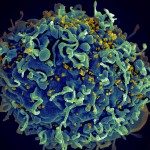About
Seminaire du Centre de Bioinformatique, Biostatistique, et Biologie Integrative (C3BI) co-organised with Virology Department
Albert-Lazlo Barabasi
Center of Complex Networks Research, Northeastern University and Division of Network Medicine, Harvard University
“Network Medicine: From Cellular Networks to the Human Diseasome”
Tuesday 12 June 2018 14:00
Auditorium Francois Jacob – BIME (26) ,Institut Pasteur, Paris
Contact: yves.jacob@pasteur.fr; christophe.becavin@pasteur.fr
Abstract :
Given the functional interdependencies between the molecular components in a human cell, a disease is rarely a consequence of an abnormality in a single gene, but reflects the perturbations of the complex intracellular network. The emerging tools of network medicine offer a platform to explore systematically not only the molecular complexity of a particular disease, leading to the identification of disease modules and pathways, but also the molecular relationships between apparently distinct (patho) phenotypes. Advances in this direction are essential to identify new disease genes, to uncover the biological significance of disease-associated mutations identified by genome-wide association studies and full genome sequencing, and to identify drug targets and biomarkers for complex diseases.
Albert-László Barabasi is a Romanian-born Hungarian-American physicist, best known for his work in the research of network theory. He is the former Emil T. Hofmann Professor at the University of Notre Dame and current Distinguished Professor and Director of Northeastern University’s Center for Complex Network Research (CCNR) associate member of the Center of Cancer Systems Biology (CCSB) at the Dana–Farber Cancer Institute, Harvard University, and visiting professor at the Center for Network Science at Central European University. He introduced in 1999 the concept of scale-free networks and proposed the Barabási–Albert model to explain their widespread emergence in natural, technological and social systems, from the cellular telephone to the World Wide Web or online communities. He is the Founding President of the Network Science Society, which grew out of and sponsors the flagship NetSci conference held yearly since 2006. (source Wikipedia)
